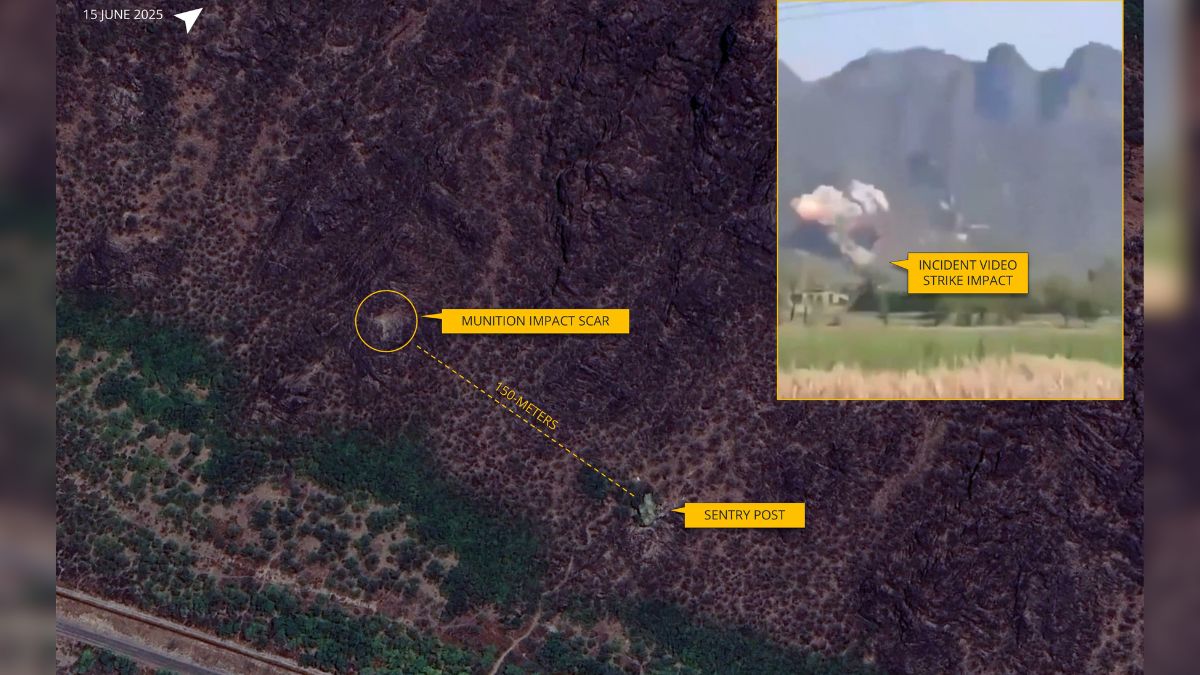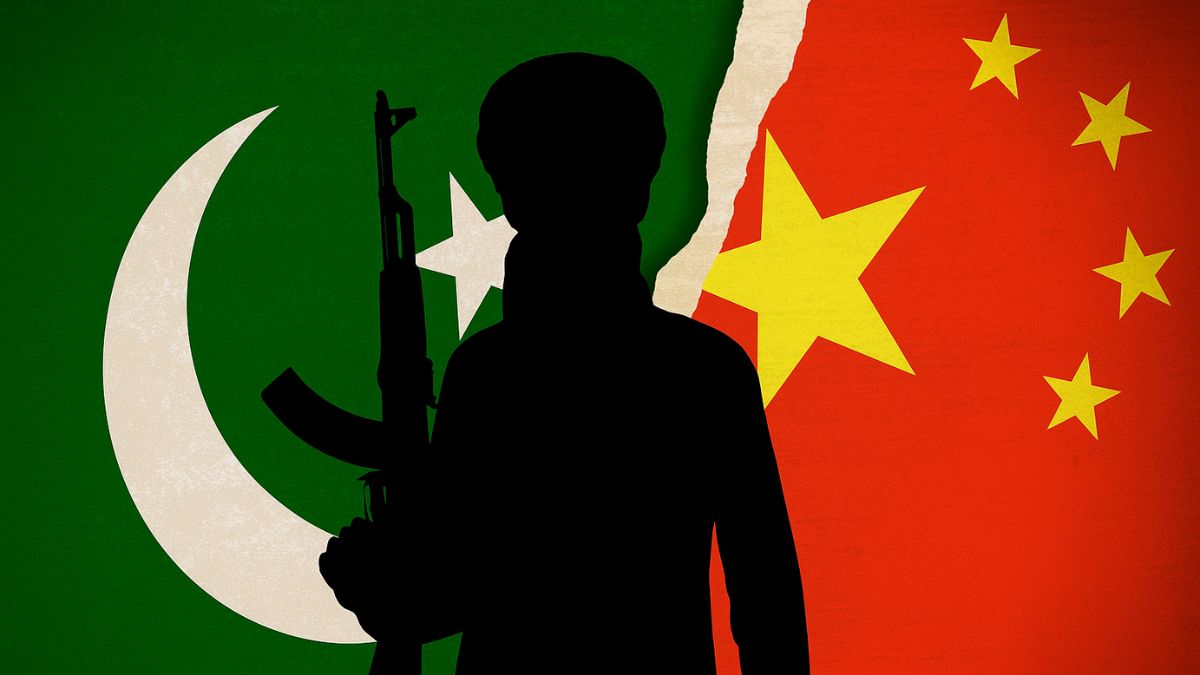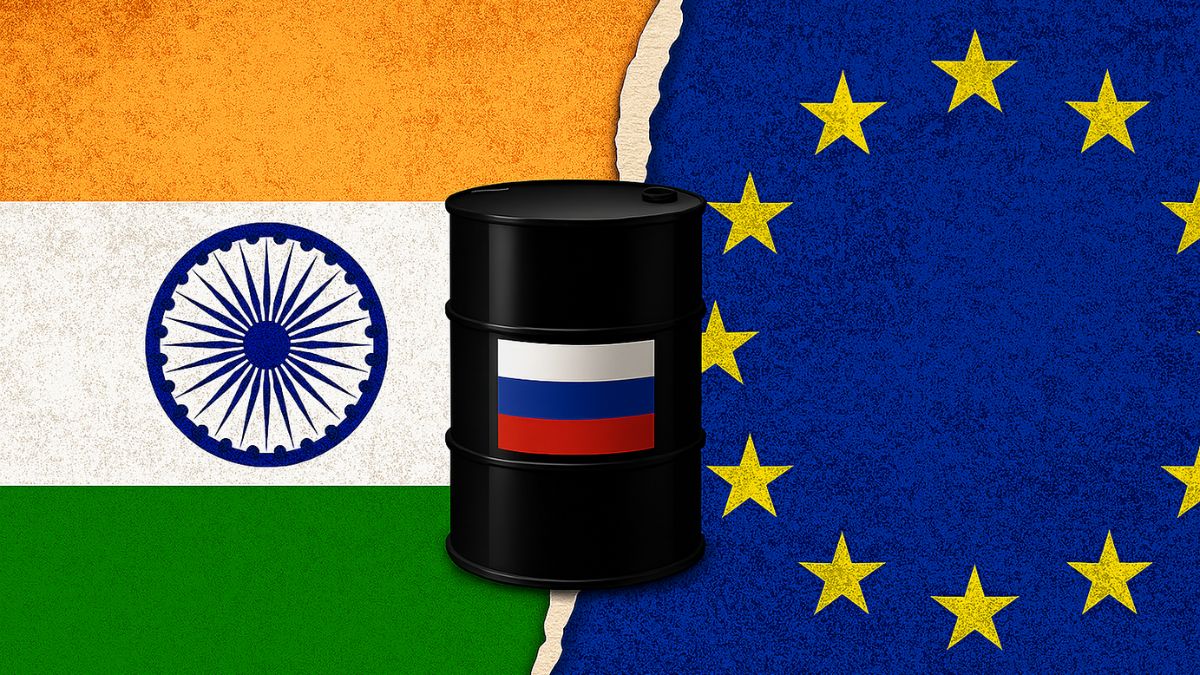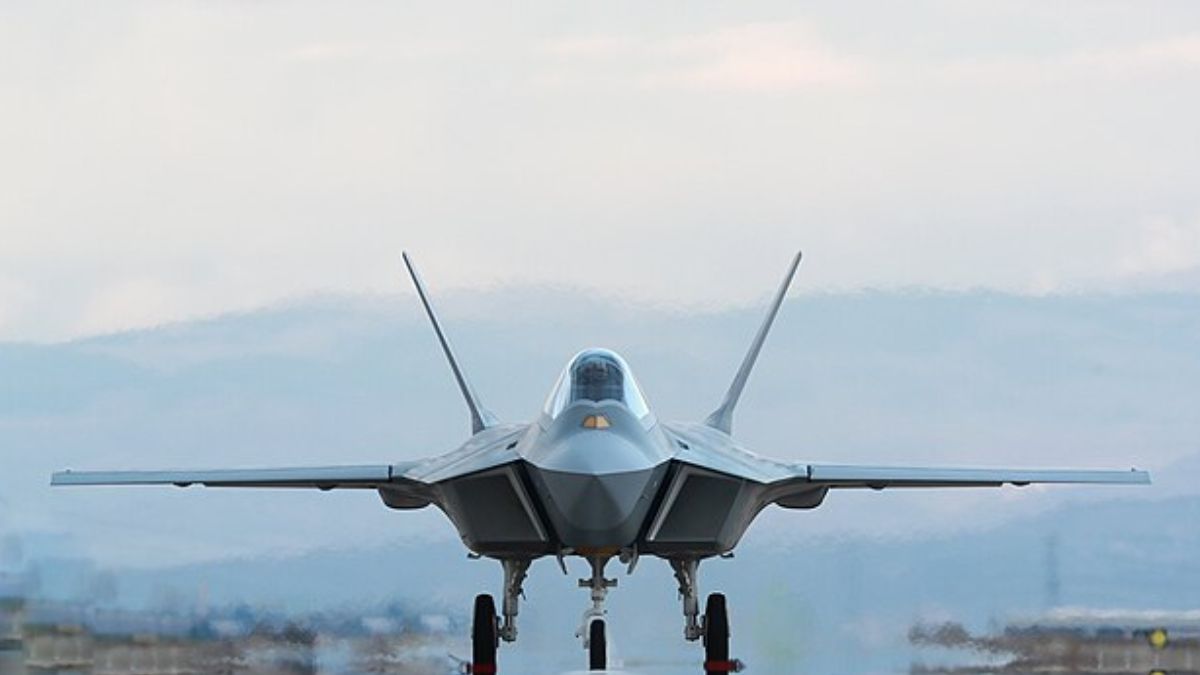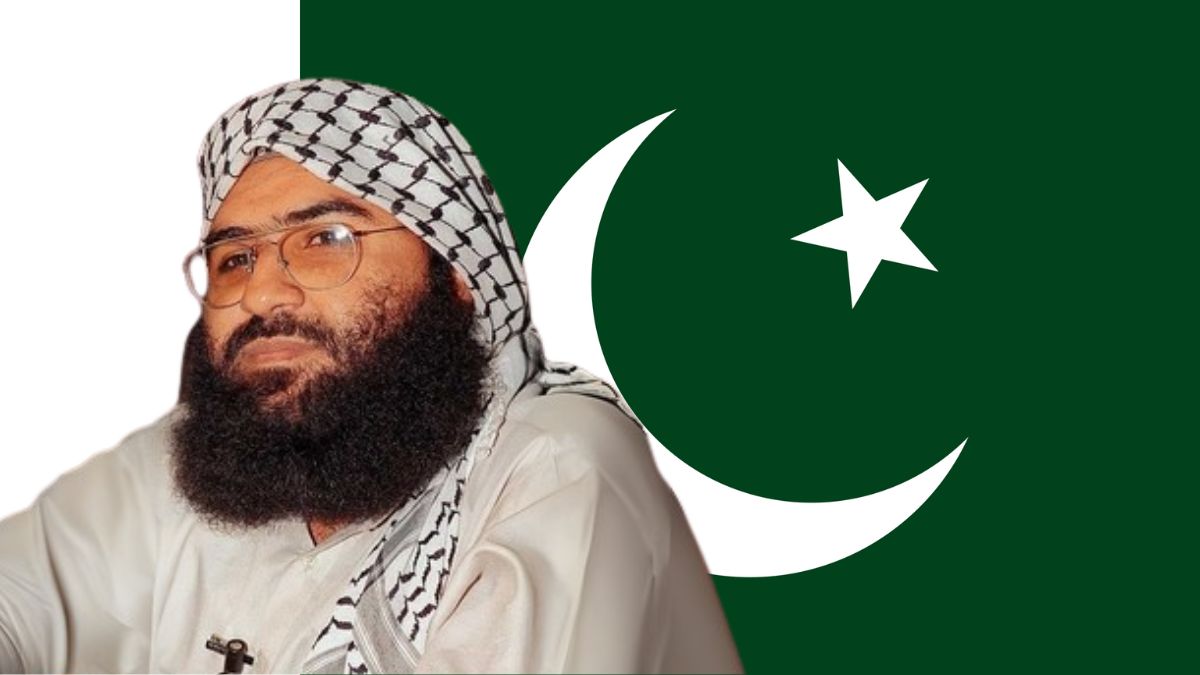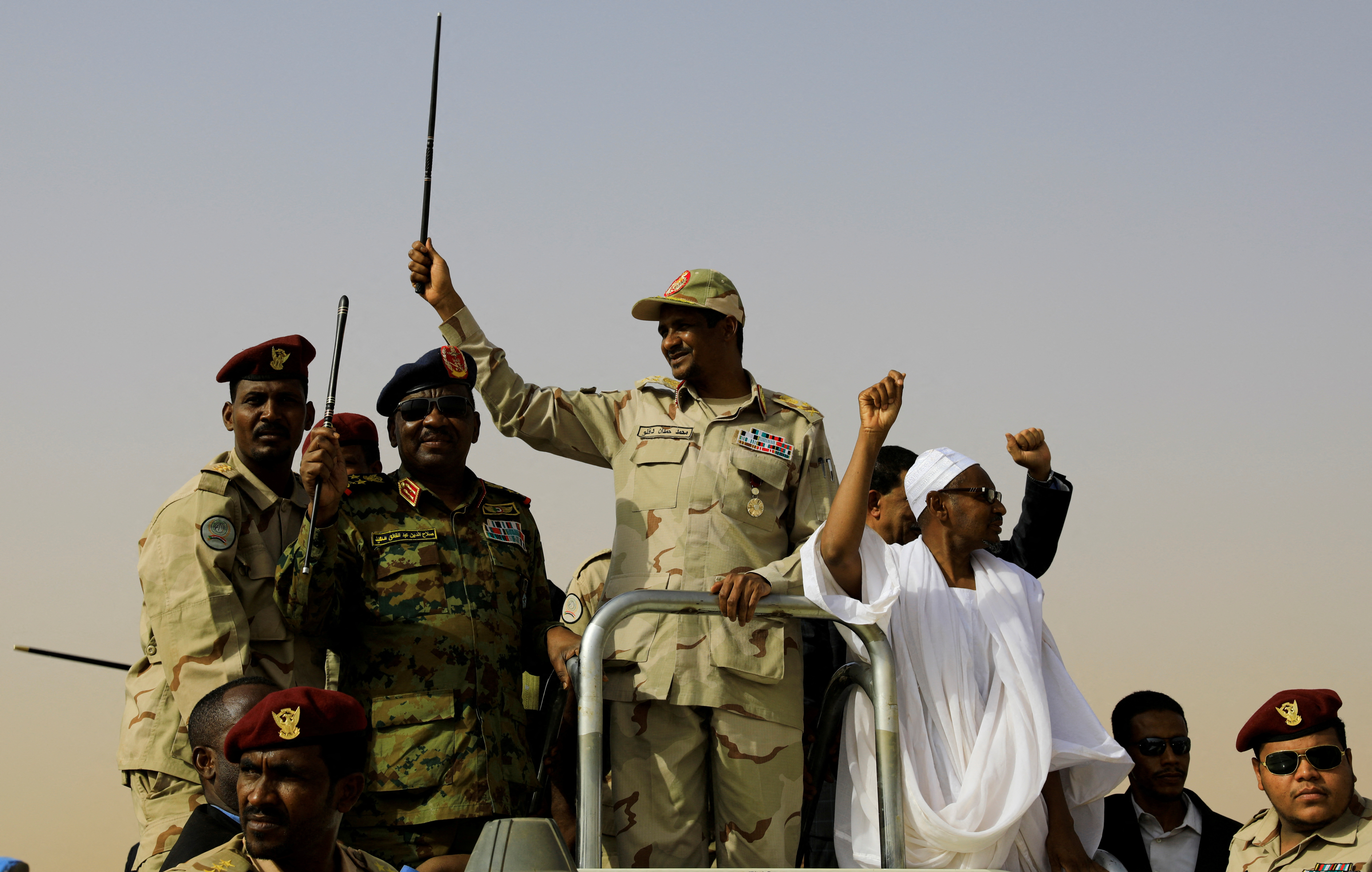Israel–Iran Conflict: As Tensions Soar, India Calls For Calm, Issues Advisory For Citizens There

Graphic representation of Israel's attack on Iran. Image Courtesy: Damien Symon/X.
As the long-simmering hostility between Israel and Iran erupts into confrontation once again, India has called for restraint and offered diplomatic support to defuse the crisis.
Following reports of high-level assassinations in Tehran carried out by Israel, the Indian Ministry of External Affairs says it is closely monitoring the situation and remains in touch with its citizens in the region.
What has India said regarding the Israel–Iran situation?
The Indian Ministry of External Affairs, in a statement published on June 13, said, “We are deeply concerned at the recent developments between Iran and Israel.”
The statement added that India is closely monitoring the evolving situation, including reports related to attacks on nuclear sites.
Through the statement, India urged both sides to avoid any escalatory steps and said that existing channels of dialogue and diplomacy should be utilised to work towards de-escalating the situation and resolving underlying issues.
“India enjoys close and friendly relations with both countries and stands ready to extend all possible support,” the statement added.
MEA stated that Indian missions in both countries were in contact with the Indian community. All Indian nationals in the region were advised to exercise caution, stay safe, and follow local security advisories.
What steps has India taken to ensure the safety of its citizens in Iran?
The Embassy of India in Iran has issued an advisory urging Indian nationals to remain alert and cautious, avoid non-essential movement, follow local security advisories, and stay in contact with the Embassy and register if needed.
Similarly, the Indian Embassy in Israel, in its advisory, has stated that all Indian nationals in Israel are advised to stay vigilant and adhere to the safety protocols by the Israeli authorities and the Home Front Command. “Please exercise caution, avoid unnecessary travel within the country, and stay close to safety shelters.”
What has been India’s position on the conflict?
India has consistently maintained a neutral stance, balancing its strategic ties with both countries. While Israel is a key partner in defence and technology, Iran is central to India’s energy interests and regional connectivity, particularly through the Chabahar Port project.
What triggered the latest round of hostilities?
The immediate spark was a series of Israeli airstrikes on Tehran in the early hours of Friday, which allegedly targeted top Iranian military officials and nuclear scientists. Though Israel has not publicly confirmed the operation, Iranian authorities have squarely blamed it for the attack.
Among those reportedly killed were Major General Hossein Salami, commander of the IRGC, Major General Gholam Ali Rashid, commander of the Khatam al-Anbiya Central HQ, Dr Fereydoun Abbasi, nuclear scientist and former atomic energy chief and Dr Mohammad Mehdi Tehranchi, a senior physicist and academic.
Iran’s Supreme Leader, Ayatollah Khamenei, has vowed “severe punishment” in response.
What is the broader context of the Iran–Israel rivalry?
The two countries have been locked in a long-running strategic conflict marked by covert operations, cyberattacks, and regional proxy battles.
The key flashpoints between the two countries include the nuclear programme tensions, where Israel accuses Iran of secretly pursuing nuclear weapons; Iran insists its programme is peaceful.
In addition, as part of the proxy warfare, Iran supports Hezbollah, the Houthis, and various Iraqi militias—groups Israel considers direct threats. Furthermore, what also gives way to increased tensions is that Israel has launched hundreds of air raids on Iranian-linked infrastructure in Syria to prevent entrenchment near its borders.
Tensions reached a new peak in April 2024, when Iran launched a direct missile and drone attack on Israeli territory, retaliating for an Israeli strike on its consulate in Damascus. This marked a major shift from covert to open confrontation.
